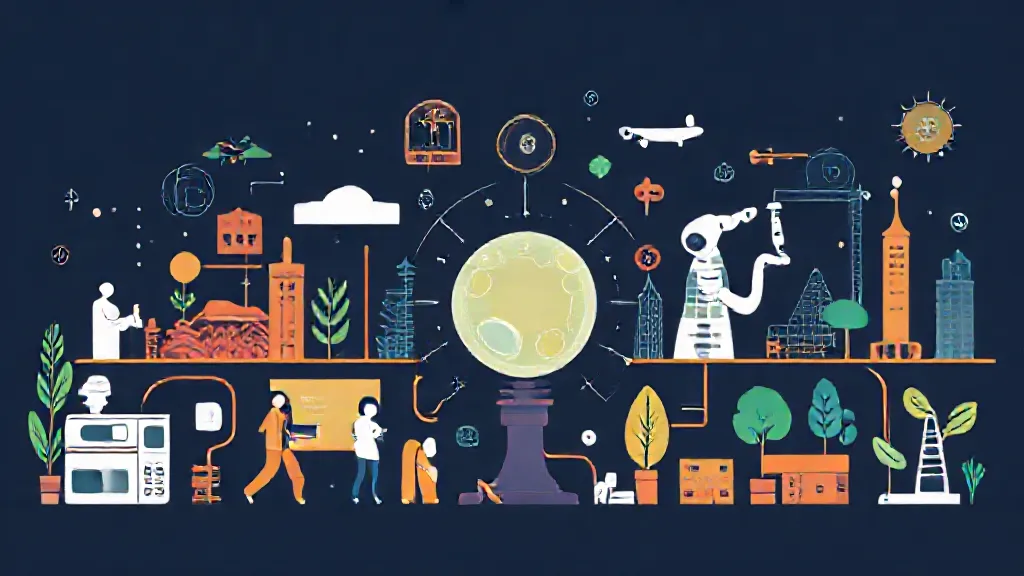Artificial Intelligence (AI) has become synonymous with computers and software, but its applications extend far beyond the digital realm. From healthcare to agriculture, AI technologies are revolutionizing various industries, enhancing efficiency, and improving outcomes. This article delves into the multifaceted uses of AI, illustrating how it is integrated into our everyday lives in ways that many may not recognize.
The Role of AI in Healthcare Innovations
One of the most significant areas where AI is making strides is in healthcare. AI algorithms are being employed to analyze large datasets, which can lead to improved diagnostics and personalized medicine. For instance, AI systems can analyze medical images to detect anomalies, such as tumors, with a level of accuracy that surpasses human capabilities.
Moreover, AI-powered chatbots are being used in telemedicine, providing patients with immediate responses to their health inquiries, thereby streamlining the patient experience and reducing the burden on healthcare professionals.
Transforming Agriculture with AI Technologies
Agriculture is another sector experiencing a transformation due to AI. Smart farming techniques utilize AI to monitor crop health, predict weather patterns, and optimize resource usage.
Drones equipped with AI technology can survey vast fields, providing farmers with real-time data on crop conditions. This not only enhances yield but also promotes sustainable practices by minimizing waste and ensuring efficient use of water and fertilizers.
AI in Transportation: The Future of Mobility
The transportation industry is also witnessing a paradigm shift with the integration of AI.
Autonomous vehicles, powered by AI, are being developed to enhance road safety and reduce traffic congestion. These vehicles use sensors and machine learning algorithms to navigate and make real-time decisions. Furthermore, AI is being utilized in logistics to optimize supply chain operations, predicting delivery times and improving route planning, which leads to cost savings and increased efficiency.
Robotics: AI Beyond the Screen
Robotics is perhaps one of the most tangible applications of AI outside of traditional computing. Robots equipped with AI capabilities are being utilized in manufacturing, performing tasks that are dangerous or repetitive for humans. For example, AI-driven robots can assemble products with precision and speed, increasing productivity while reducing the risk of workplace accidents.
Additionally, robots are being deployed in fields such as search and rescue, where they can operate in hazardous environments that are unsafe for human responders.
Enhancing Customer Experience Through AI
In the retail sector, AI is transforming the customer experience. Retailers are using AI to analyze consumer behavior, enabling personalized marketing strategies that resonate with individual preferences.
AI-powered recommendation systems suggest products to customers based on their browsing history and purchasing patterns. Furthermore, AI chatbots are enhancing customer service by providing 24/7 support, answering queries, and resolving issues promptly, which improves overall customer satisfaction.
AI in Education: Personalized Learning Experiences
Education is another field where AI is making a significant impact.
AI-driven platforms are being developed to create personalized learning experiences for students. These systems can adapt educational content based on a student's learning pace and style, ensuring that each individual receives the support they need to succeed. Additionally, AI can automate administrative tasks, allowing educators to focus more on teaching and engaging with students.
The Impact of AI on Environmental Sustainability
AI is also playing a crucial role in addressing environmental challenges. Machine learning algorithms are being utilized to analyze climate data, predict natural disasters, and develop strategies for conservation efforts. For example, AI can help monitor wildlife populations, track deforestation, and optimize energy consumption in smart cities.
By harnessing AI, we can make informed decisions that promote sustainability and protect our planet for future generations.
The Future of AI Integration in Everyday Life
As we look to the future, the integration of AI into various aspects of life will only continue to grow. From smart homes that utilize AI for energy management to wearable technology that monitors health metrics, the possibilities are vast.
As AI continues to evolve, it will become increasingly important to address ethical considerations and ensure that these technologies are used responsibly and equitably.
In conclusion, AI is far more than a tool confined to computers; it is a transformative technology that is reshaping industries and enhancing everyday experiences. By understanding and embracing the diverse applications of AI, we can harness its potential to drive innovation and improve quality of life across the globe.
